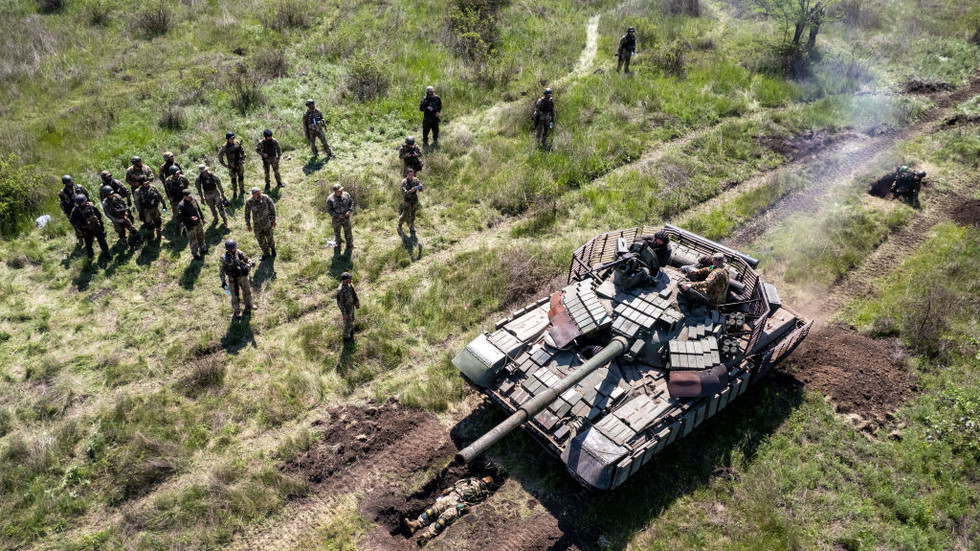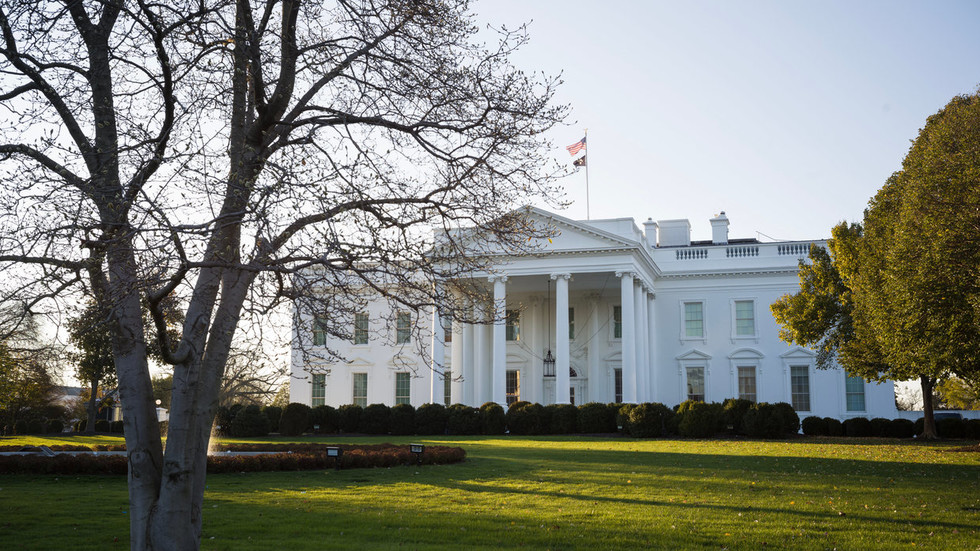
“You don't have to believe in coincidences because they happen every day. The trick is to be able to discern when something is more than coincidence.”
Intelligence Snippet of the Week:
Human Intelligence Analysis (HUMINT) is a process of collecting and analyzing information about people, groups, or organizations. It involves using trained human intelligence collectors or agents to gather information through various methods, such as interviews, surveillance, or other covert activities.
Once the information is collected, it is then analyzed by intelligence analysts who interpret the data, identify patterns and trends, and draw conclusions to support decision-making. The information gathered through HUMINT can be used for a variety of purposes, such as national security, law enforcement, or business intelligence.
HUMINT analysis is a critical component of intelligence gathering and is often used in combination with other intelligence disciplines, such as signals intelligence (SIGINT) and imagery intelligence (IMINT). It is important for HUMINT analysts to have strong analytical skills, cultural awareness, and the ability to work with a range of sources in order to obtain the most accurate and useful information possible.
One way militaries gain Human Intelligence is through trained interrogators. Interrogators are trained to obtain pertinent information through various forms of interrogation techniques. Those techniques include but are not limited to:
Good Cop/Bad Cop: This technique involves two interrogators, one playing the "good cop" and the other the "bad cop." The good cop attempts to build rapport with the subject, while the bad cop uses aggressive and confrontational tactics to create stress and anxiety in the subject.
Sleep Deprivation: This technique involves depriving the subject of sleep for extended periods of time, which can cause disorientation and fatigue. This can make the subject more vulnerable and more likely to provide information.
Waterboarding: This technique involves placing a cloth over the subject's face and pouring water onto it, creating a sensation of drowning. It is widely considered to be torture and is illegal under international law.
Isolation: This technique involves placing the subject in a cell or room by themselves for extended periods of time, often without access to basic necessities like food, water, or sanitation facilities. This can cause extreme psychological stress and anxiety.
Deception: This technique involves misleading or lying to the subject in order to elicit information or a confession. This can involve false promises or threats, and it can be psychologically manipulative.
It is important to note that many of these techniques have been deemed unethical or illegal by organizations such as the United Nations and may cause lasting physical or psychological harm to the subject. Additionally, false confessions obtained through these techniques may lead to wrongful convictions and the punishment of innocent people. As such, it is important to use ethical and legal interrogation techniques that respect the dignity and human rights of the subject.
Weekend Insights
The Munich Security Conference is being held to focus on the one-year anniversary of Russia's invasion of Ukraine. Russian troops are intensifying their assaults in Ukraine, with land attacks across the east and south. The U.S. is seeking to further squeeze Russia’s economy by directly warning companies against evading U.S. sanctions. At the same time, Ukraine is requesting heavier weapons from its Western allies for a spring counter-offensive. Meanwhile, President Putin hosted Belarus' Alexander Lukashenko for talks on expanding economic ties. Belarus continues to stay on the sidelines while supporting Russia in other ways. The first Ukrainian battalion has completed combined arms training with support from the U.S. European Command, whilst additional training is underway.
China has warned the United States that in the event of further escalation over a Chinese balloon that the U.S. military shot down this month, Beijing would "bear all the consequences." China's top diplomat Wang Yi has accused the United States of violating international norms with "hysterical" behavior. U.S. Vice President Kamala Harris said she was troubled by China deepening its relationship with Russia since the invasion in Ukraine and that its support would undermine the rules-based international order. These comments further clouded prospects of a meeting between Wang and U.S. Secretary of State Antony Blinken at the sidelines of the gathering. The two discussed de-escalation with no resolution reached yet.
Over the weekend, the United States and South Korea held joint air exercises with Japan involving strategic bombers, F-15s, and various other aircraft in tactical exercises. This demonstration of military power comes in response to North Korea's firing of a Hwasong-15 intercontinental ballistic missile (ICBM) on Saturday, which landed in Japan's Exclusive Economic Zone (EEZ). The launching drill was an attempt by North Korea to improve its nuclear counterattack capabilities. This event drew criticism from countries such as the United States, South Korea, and Japan.
Headlines

NATO Secretary General Jens Stoltenberg said at a recent press conference that Russia's dreaded winter offensive seems to have begun. Russia is introducing new troops to the battlefield and relaunching new offensives in eastern Ukraine.
Analyst Comment:
The Winter Offensive continued into the weekend. Russian forces launched missile strikes against Ukrainian infrastructure throughout the country, targeting civilian infrastructure in Khmelnytskyi City and Ukraiinsk in Donetsk Oblast. Ukrainian air defense systems were able to shoot down two of the four missiles launched. Russian sources claimed that its forces struck critical infrastructure facilities in numerous Ukrainian cities. Ukrainian nuclear enterprise Energoatom reported that two Russian missiles flew dangerously close to the South Ukraine Nuclear Power Plant (NPP). Russian news aggregators are advocating for Russia to carry out “retaliatory strikes” that would systematically target electrical infrastructure. This would force Ukraine to conduct emergency shutdowns of its NPPs. This action would be a severe escalation of force by the Russian military.
The Russian Ministry of Defense (MoD) dismissed Donetsk People's Republic (DNR) military spokesman Eduard Basurin as part of the reorganization of the DNR militia under the Russian MoD. This dismissal has led to criticism from Russian military bloggers against the Russian defense establishment. The DNR and LNR's 1st and 2nd army corps were not effective at capturing and holding ground during the invasion of Ukraine and required reinforcements from the Russian military.
Russia continues to fail to deliver on previous financial promises to volunteer forces. This failure will likely have detrimental ramifications on Russia’s ability to generate volunteer forces in the long term. Also, Russia seeks to professionalize and expand its army. Prominent Russian military bloggers claimed that the Russian military is not delivering promised financial compensation to Russian combatants across many units and noted that the problem is particularly affecting elements of the Russian Combat Army Reserve (BARS).

China warned the United States on Sunday it would "bear all the consequences" if it escalated the controversy over a Chinese balloon that the U.S. military shot down this month. Beijing will "follow through to the end" in the event "the U.S. insists on taking advantage of the issue," the foreign ministry said in a statement.
Analyst Comment:
In recent weeks, the relationship between the United States and China has been tested by an incident involving an unmanned Chinese airship that entered U.S. airspace and was shot down by the military. This event highlights the growing tension between the two countries, which was already deteriorating due to long-standing issues of intelligence gathering and competition for allies and partners around the world. While the Biden administration has tried to remain calm, some in the media have reacted far more aggressively. China has blamed the U.S. for the escalation by refusing to take calls from U.S. Secretary of Defense.
The cancellation of the U.S. Secretary of State's trip to China was inevitable, but bad news for hopes the two sparring nations could improve relations. With the amount of outrage generated over one airship, the possibility of a collision between Chinese and American military aircraft in the age of amped-up nationalism and a vastly more confident China is concerning. The best hope is to contain rather than reverse the deterioration in relations, as the political climate in the U.S. becomes more charged with the approach of the 2024 election.
The situation poses a challenge for other western nations whose interests and values are aligned with but not identical to the United States. Mutual distrust between the U.S. and China is increasing. Both sides have a growing conviction that the other is coming for them. While China has become harder to read, it is essential to talk and gather intelligence to better understand each other, given the increasing distrust.
The United States held joint air exercises bilaterally with South Korea and Japan involving strategic bombers on Sunday, a day after North Korea fired a Hwasong-15 intercontinental ballistic missile (ICBM) in a "sudden launching drill."
Analyst Comment:
The joint air exercises by the United States, South Korea, and Japan are a demonstration of their readiness and preparedness in the face of North Korea's aggressive posturing. North Korea's missile launch was a clear signal that its leader Kim Jong Un intends to expand the country's nuclear arsenal. The hope is this would strengthen its bargaining position with the United States. The missile used, a Hwasong-15 ICBM, is a significant advancement for North Korea's missile program. Analysts believe it can reach the mainland United States if fired at a standard trajectory. While it is still a source of outside debate whether North Korea has a functioning nuclear-tipped ICBM, the country claims to have acquired the necessary technology.
The steep-angle launch of the Hwasong-15 was an apparent attempt to avoid neighboring countries. This shows that North Korea is aware of the potential for regional instability caused by its missile tests. The North's efforts to build a solid-fueled ICBM are a cause for concern, as such missiles would be more mobile and harder to detect before launch. This would give North Korea an advantage in surprise attacks, making it difficult for the allies to respond in time.
North Korea's missile tests pose a significant threat to regional stability and global security. The joint air exercises by the United States, South Korea, and Japan are a clear message to North Korea that the allies are prepared to defend themselves against any aggressive actions. The situation in the region remains tense, and it is crucial for the allies to continue to monitor North Korea's activities and to be prepared to respond to any potential threats.
Country Profile
Ukraine

Ukraine is a unitary parliamentary republic with a President as the head of state and a Prime Minister as the head of government. The President is elected by the citizens through a direct vote for a five-year term. The Prime Minister is appointed by the President with the approval of the parliament. The parliament, called the Verkhovna Rada, is a unicameral body that has 450 members elected for a five-year term. The country has a multi-party system with numerous political parties vying for power.
Ukraine has a mixed economy that is the second-largest in Europe after Russia. The country is rich in natural resources, including iron ore, coal, natural gas, and agricultural land. Ukraine's economy heavily relies on its agricultural sector, which is one of the largest in the world. The country is also an important producer of steel, chemicals, and other industrial goods. Since its independence from the Soviet Union in 1991, Ukraine has struggled with economic reforms, corruption, and political instability. The country has experienced several economic crises, including a severe recession in 2014-2015. Despite these challenges, Ukraine has made progress in recent years, with its GDP growing at an average rate of 3.3% per year from 2017 to 2019.
Ukraine's armed forces consist of ground, air, and naval forces. The country has a mandatory conscription system, and all able-bodied men between the ages of 18 and 27 are required to serve for one year. Ukraine's military is currently undergoing significant modernization and restructuring efforts. The country has been involved in a conflict with Russia over the annexation of Crimea in 2014 and the recent invasion of eastern Ukraine in 2022. As a result, Ukraine's military has been heavily involved in combat operations, and the country has received military assistance from several countries, including the United States. Ukraine's defense budget has been increasing in recent years, reaching $5.1 billion in 2021, which is around 3% of the country's GDP.
Travel Advisory Levels for Ukraine
Currently, Ukraine has a ‘do not travel’ advisory due to Russia’s full-scale invasion. The security situation in Ukraine remains unstable, and travelers are advised to exercise increased caution when traveling to Ukraine. The ongoing conflict between Ukraine and Russian-backed separatists has resulted in sporadic violence, and travelers should be prepared to take appropriate measures to ensure their safety.
Reports indicate that Russian forces and their proxies have targeted U.S. citizens in Ukraine for detention, interrogation, or harassment based on their nationality. Additionally, U.S. citizens have faced difficulties when evacuating by land through Russia-occupied territory or to Russia or Belarus.
On February 24, 2022, the Ukrainian government declared a state of emergency, and each province will decide on the measures to be implemented based on local conditions. These measures could include curfews, restrictions on movement, ID verification, and increased security inspections, among other measures.
Media Bias Alert
This week we will tackle the discussion on how 'State-run' media organizations cover stories about the United States and Western Europe. Multiple countries around the world have a 'highly controlled' media apparatus that is run by the country's government. RT, formerly known as the Russia Times, is one of the most popular state-run media organizations in the world. RT is based in Moscow and had a presence in Washington, New York, London, Paris, Delhi, Cairo and Baghdad, and other cities.
Analysis of Bias:
The above article contains a bias in favor of Russia. It paints a negative picture of the U.S. and its allies by implying that they are solely responsible for causing civilian deaths, and it omits any recognition of Russia's role in the conflict. It also ignores the actions of other nations and institutions providing aid to Ukraine, such as the European Union, Poland, Canada, Norway, and the International Monetary Fund (IMF). Additionally, it presents official aid commitments from these sources in terms that make them sound disproportionately high when compared to Ukraine's GDP.
The Global Times is a daily newspaper under the auspices of the Chinese Communist Party's flagship newspaper, the People's Daily, commenting on international issues from a Chinese ultra-nationalistic perspective. The newspaper has been the source of various incidents, including fabrications, conspiracy theories, and disinformation. It is part of a broader set of Chinese state media outlets that constitute the Chinese government's propaganda apparatus.
Analysis of Bias:
This piece of information has a bias against the United States, painting it in an unfavorable light. The language used implies that their actions will strain U.S.-China relations. The point about them pushing for more aggressive stances on the Taiwan question implies that the U.S. is manipulating public opinion to further its own agenda. The idea that their "irrational handling" of the Taiwan question could lead to less room for change further reinforces this negative sentiment.
Interesting Articles from the Weekend

Stay safe out there





